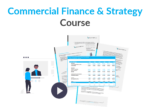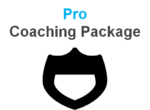
How to move from Audit to Transaction Services (TS / TAS) – Part 2 of 3: The different ways to execute your move
In this 3-part post we’ve broken down – for those of you who have explored your accounting & audit exit opportunities and are certain of where you want to go next – the fundamental ways to help you stand out from your peers and make the move from Audit to Transaction Services / Transaction Advisory Services (TS). We’ve split this into:
- Part 1 – What is TS & how to stand out from the crowd?
- Part 2 – The different ways to execute your move out of accounting & audit (YOU’RE HERE)
- Part 3 – Myths & Things to watch out for when leaving accounting
In this Part 2 we’ll discuss 3 common ways you can make the move from Audit to Transaction Services. These apply at any stage of your current Accountant qualification status (i.e. just starting out in audit, newly qualified, 2 years post qualification etc.).
Part 2 will be broken down into the following sections:
- Apply internally to a TS division
- Apply externally to a TS division
- Network with an internal/external TS Partner
- Most recommended execution method
1.Apply internally to a TS division
The options are all fairly self-explanatory…but surprisingly the process of moving internally can be the most confusing.
Why does HR make moving internally so complicated?
Because it is complicated…for them.
The HR team who recruited you likely work for the Auditing department and have spent time and money recruiting and training you (to at least some extent) with the expectation that your hard work will be billed to their Audit clients to repay this debt. You are effectively a walking debt to your audit HR team until you’ve paid back your time in billing hours.
Conversely, the TS HR team have to respect the Audit HR team’s decision to let you go early (i.e. before you have qualified) and may even cut a deal with them to split your hours over audit and TS as a compromise. We will discuss this more in Part 3 – Watch outs & myths.
Do I need to be top of the class vs my peers to move internally?
This certainly helps you stand out to the TS team that might take you on and gives you the best chances, but frankly, still doesn’t guarantee anything and isn’t always within our control. For example, becoming “top of the class” is as much down to internal politics and pure luck as it is doing well at your job and passing your exams with flying colours (i.e. those working on the most prestigious clients for the firm have a higher likelihood of getting this top ranking).
2.Apply externally to a TS division
Given the internal HR barrier mentioned above, it’s often easier to apply to the TS division of another Accountancy firm completely (Big 4 or otherwise).
The most common question you’ll likely be asked if you make it to the interview stage here, is why you didn’t or weren’t able to move internally at your current firm.
Just make sure you have a believable answer to this question. Perhaps your best bet is to revolve your answer mostly around the positives of the prospective external firm you’re interviewing with, rather than the negatives of the firm you are currently/were previously at. You’ll help rub their ego and it’s a chance to show you’ve done your research and know a thing or two about their performance etc.
It’s also always more respectable if you have positive things to say about previous firms / experiences in any interview situation, so just do the same here.
3.Network with an internal / external TS partner
The word “networking” can sound a bit daunting, but in reality, when we refer to networking in this context we’re talking about an informal conversation about your desires to move into TS or something more strategic than pure Audit.
Networking with a Partner (or senior equivalent) is a friendly and (hopefully) honest chat about what options might be available for you in their TS dept, how the application process might look and advice on your application (including potentially using them as a referral to the HR application process).
Prepare yourself for a few high-level interview-style questions that the TS Partner might ask (such as the following) and you’ll be much more comfortable about the encounter:
- Why do you want to move into TS?
- What area or division of TS are you most interested in and why?
- Why don’t you try moving internally (if you’re applying externally)?
- What relevant experience do you consider yourself to have?
- Where do you see yourself in 5+ years time and why?
Want to know what “good” answers to these questions sound like? Why not get some advice on a personalised call with one of TheSwiftExit.com Co-Founders?
How do I reach out to network with a Partner?
The easiest way is to ask for an introduction from someone you know. Recommendations by word of mouth are the strongest influencers of all, but this also indirectly demonstrates that you have a valuable network, and know what you want and how to get it!
The introduction would ideally come from the following in rough order of priority:
- An Audit Partner you’ve previously worked with
- A client of the TS Partner (e.g. you know someone from an external firm that the TS Partner want to impress)
- A valued member of that Partner’s TS team
If you have someone who has been appointed your formal “counsellor” / “buddy” in your firm and they are respected in the business, you might be tempted to ask them to introduce you. This might also work, although I’d be careful this doesn’t come across that you were too shy to ask yourself.
Alternatively, but likely much less successful (and potentially more stressful for some), is to target a Partner on LinkedIn or at an event or randomly in the office and give them your elevator pitch. If you are naturally quite good at this sort of thing and you can handle rejection, then by all means go ahead ? … but often introductions from others carry more weight.
4.Most recommended execution method
If you’re determined on getting into TS then you should be trying all 3 options, but as I mentioned previously, recommendations & introductions from others can be key here.
With an introduction / recommendation you might get put to the top of top of the pile and skip part of the application process (e.g. not having to do fill out a formal first stage application form and go straight to an interview).
With all of these scenarios you will need to be 100% comfortable with which division of TS you’re aiming for, what role each division plays in a transaction, which stakeholders they interact with and the likely career paths for each to ensure your success. Without this foundational knowledge you risk being unable to adequately portray your interest and relevant skillset for TS to prospective employers.
If you’re unsure of the different areas of TS, how TS interlink with one another/stakeholders and also how your previous audit experience can be valuable for this (i.e. to help you in your applications & interviews) then you should check out our digital Exit Options | A Guide to the Landscape. Be sure to use “ExitOptionsLoyalty20” code at checkout for a discount!
Wrapping up…
- There are 3 main options to help you move into TS and you should be actively pursuing all of them.
- Remember that applications have a higher chance of success when combined with a recommendation or introduction from a relevant source.
- Fully understand the different divisions of TS, what role each division plays in a transaction, which stakeholders they interact with and the likely career paths for each BEFORE you start applying and reaching out to ensure you know what you’re talking about when speaking to prospective employers/Partners.
How to move from Audit to Transaction Services (TS / TAS) – 3 PART SERIES
- Part 1 – What is TS & how to stand out from the crowd?
- Part 2 – The different ways to execute your move (YOU’RE HERE)
- Part 3 – Myths & Things to watch out for
If you’d like more personalised advice from one of our Co-Founders to review TS job specs, step change your applications, discuss negotiating tactics and more… we’d be happy to support! Check out our personalised calls and coaching packages here
Exit Options | Mapping the post-accounting & audit landscape
A lot of the clients we coach ask about moving into more strategic & commercial roles after spending time in traditional accounting & audit, but don’t know where to start or even what opportunities exist …so-much-so that we’ve put together a map of the landscape of accounting exit opportunities, which I encourage you to check out!
Want to land (and master) more strategic and commercial roles?
Learn how to upskill beyond your technical accounting & audit background in the first (and only) online course built specifically for accountants. Through interactive modules, case studies, and real-world applications, you’ll learn how to confidently build financial models, assess business opportunities, and everything else needed to contribute meaningfully to strategic decision-making. Build hard commercial skills to future-proof your skill set and prove you can translate your accounting background into a commercial context with the Commercial Finance & Strategy – Principles and Execution online course.
Spice up your CV/Resume for the post-accounting & audit world
We’ve created a 50+ page digital guide specifically to help those of you applying for more commercial & strategic roles. Our straight-talking CV/Resume advice for Accountants/Auditors is the only guide that is highly-specific to the traditional accounting & audit background: we give you real-life good & bad examples for showcasing your experience for strategic roles, the best structure & content to win over recruiters, a strategy for distributing your CV/Resume, interview advice, and more!











